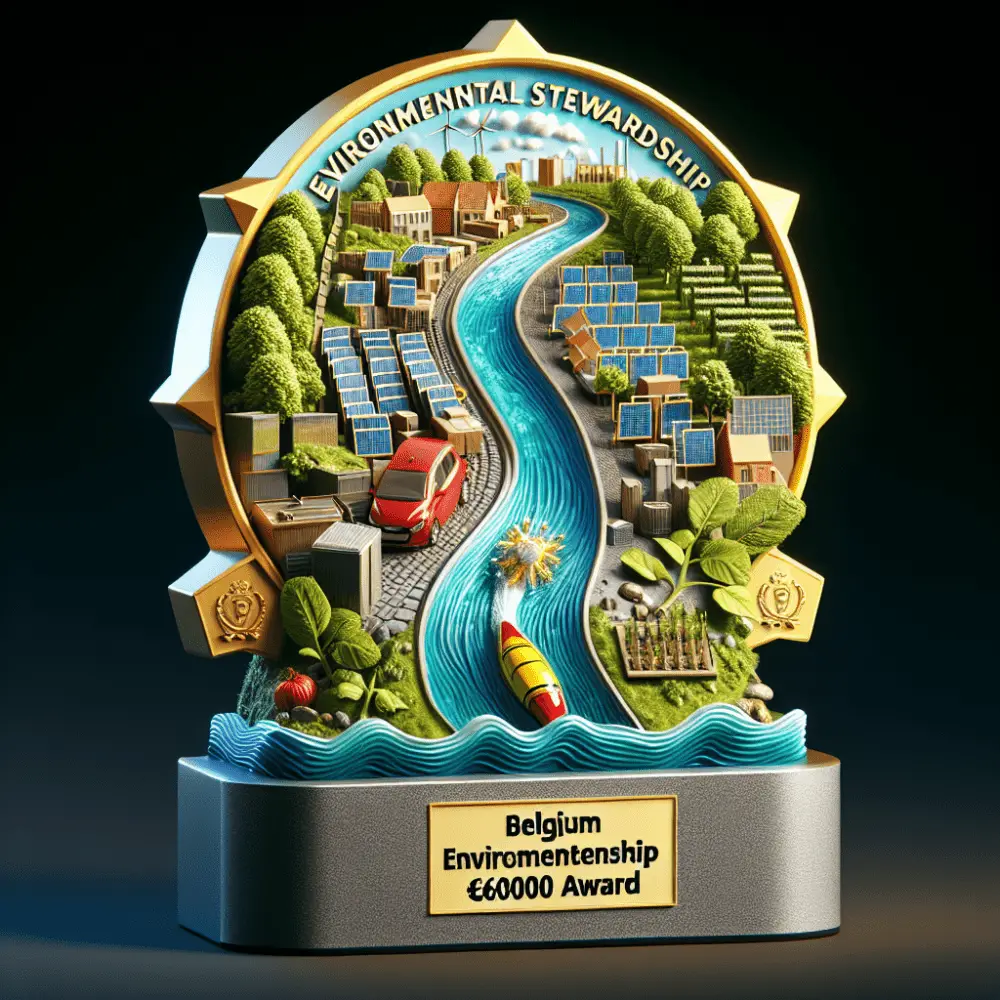Scholarship details
$1,500 Southeast Europe Environmental Leadership Grants, 2025
In a world increasingly challenged by environmental concerns, initiatives nurturing ecological consciousness are vital. The $1,500 Southeast Europe Environmental Leadership Grants, set for 2025, play an essential role in fostering environmental stewardship across the region. These grants are designed to encourage innovative practices and ideas among budding environmentalists passionate about creating sustainable futures for their communities.
Host Organization Overview
The host organization behind the grant is the Southeast Europe Environmental Alliance (SEEA). Dedicated to sustainable development, SEEA has made significant strides in promoting eco-friendly initiatives in recent years. It is renowned for its collaborative efforts with local governments, NGOs, and communities to create policies and projects that align with environmental sustainability.
SEEA stands out due to its commitment to building a network of environmentally conscious leaders. Its primary aim is to empower individuals with the knowledge and resources necessary for impactful ecological change. Through a range of grants, educational programs, and community projects, SEEA serves as a beacon for environmental leadership in Southeast Europe.
Introducing the Host Country
The 2025 Environmental Leadership Grants aim to fortify initiatives in countries like Croatia, Serbia, and Bosnia and Herzegovina. These countries, synonymous with rich natural beauty and biodiversity, also face environmental challenges requiring innovative solutions. Croatia, known for its stunning Adriatic coastline and UNESCO World Heritage sites, emphasizes the need for conservation amid rising tourism. Meanwhile, Serbian rich agricultural lands and forests offer vast opportunities for promoting sustainable farming practices.
Bosnia and Herzegovina, celebrated for its diverse ecosystems and stunning landscapes, is on a transformative path towards environmental reform. Grassroots efforts across these nations are critical for addressing issues like pollution, waste management, and renewable energy development.
Creating Broader Opportunities
Southeast Europe’s Leadership Grants come at a pivotal moment, when global attention to climate change is increasingly linked to regional problems. This program empowers regional scholars by providing them a platform to address environmental issues, subsequently offering broader benefits.
In the context of creating educational opportunities, an interesting parallel emerges with the Mental Health Awareness Fund in the UAE. This $4,500 fund for 2024 underscores the importance of addressing mental well-being, equally critical in regions facing socio-environmental stressors. Both programs aim to provide systemic changes through empowerment at the local level, presenting models for sustainable growth.
The UAEs fund seeks to foster initiatives that promote mental health solutions, recognizing the vital link between ecological disruption and psychological well-being. Hence, both in the Southeast European and Middle Eastern contexts, a growing acknowledgment exists of these intertwined facets of well-being.
Bridging Diverse Scholarship Opportunities
The Environmental Leadership Grants aren’t only for aspiring scholars from Southeast Europe but are also available to African students. This inclusive approach enhances cross-cultural collaboration, paving the way for a diverse range of environmental solutions.
This inclusivity reflects a trend seen in scholarships worldwide, bringing various regions closer through educational exchanges. Take, for instance, the $12,000 Scholarship for Software Engineering Milestone in China for 2024. This program highlights China’s pivotal role in technological advancement and talent development.
Similarly, grants like the Environmental Leadership initiative are critical not only for regional innovation but also for cultivating a global network of forward-thinkers. African students joining this cohort will provide fresh perspectives, influencing positive environmental outcomes across continents.
Eco-Innovation as a Catalyst for Change
Environmental issues are local and global, and leaders emerging from these grants have the unique opportunity to turn idealism into actionable projects. These $1,500 grants are vital not only for immediate financial support but as catalysts for long-term eco-innovation.
Real-world applications might include developing sustainable urban planning strategies or introducing renewable energy solutions in underserved areas. A broad spectrum of projects supported by such grants can subsequently lead to collective awareness and significant shifts in policy.
This commitment to grassroots activism resonates with the mental health initiatives in the UAE and the software advancements promoted in China. Each of these programs aims to contribute to the broader tapestry of global development by addressing localized challenges and leveraging innovation.
Building a Legacy of Environmental Leadership
Investing in future environmental leaders creates a legacy that echoes beyond immediate transactional benefits. As seen with the upcoming 2025 grants, empowering individuals in Southeast Europe and Africa is a mission deeply embedded within SEEA’s philosophy.
Long-term visions include establishing a more economically robust and ecologically sustainable Southeast Europe. As these leaders develop and implement their projects, they will not only tackle regional challenges but inspire similar movements elsewhere.
This vision harmonizes with international endeavors like those in China and the UAE, showcasing a global acknowledgment that sustainable futures require synergy across sectors and geographies.
Conclusion
The $1,500 Southeast Europe Environmental Leadership Grants, along with similar initiatives fostering mental health awareness and technological growth, demonstrate that thoughtful investment in education and innovation can drive systemic change. These programs create key opportunities for budding leaders across continents to come together and share their ideas.
Each of these efforts—whether combating environmental threats, enhancing mental well-being, or advancing technological prowess—highlights the necessity of nurturing localized solutions with global implications. Ultimately, through collaboration and inclusive grant opportunities, a new cadre of leaders will emerge, leaving an indelible mark on the world’s path to sustainability.




















